|
|
|
Sort Order |
|
|
|
Items / Page
|
|
|
|
|
|
|
| Srl | Item |
| 1 |
ID:
183670
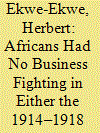

|
|
|
|
|
| Summary/Abstract |
The wars of 1914–1918 and 1939–1945 are without parallel in the expansive stretch of decades of the pan-European conquest and occupation of Africa in creating such profound opportunity to study the very entrenched desire by the European conqueror-states in Africa to perpetuate their control on the continent and its peoples indefinitely. The two principal protagonists in each conflict, Britain and Germany, were the lead powers of these conqueror-states that had formally occupied Africa since 1885. Against this cataclysmic background of history, Africans found themselves conscripted by both sides of the confrontation line in 1914–1918 to at once fight wars for and against their aggressors during which 1 million Africans were killed. Clearly, this was a case of double-jeopardy of conquered and occupied peoples fighting for their enemy-occupiers. In the follow-up 1939–1945 war, when Germany indeed no longer occupied any African land (having been defeated in the 1914–1918 encounter), Britain and allies France and Belgium (all continuing occupying powers in Africa) conscripted Africans, yet again, to fight for these powers in their new confrontation against Germany, and Japan, a country that was in no way an aggressor force in Africa. Hundreds of thousands of Africans were killed in this second war. In neither of these conflicts, as this study demonstrates, do the leaders of these warring countries who occupied (or hitherto occupied) Africa ever view their enforced presence in Africa as precisely the scenario or outcome they wished their own homeland was not subjected to by their enemies. On the contrary, just as it was their position in the aftermath of the 1914–1918 war, Britain, France, Belgium, Spain and Portugal in 1945 each envisaged the continuing occupation of the states and peoples of Africa they had seized by force prior to these conflicts. Winston Churchill, the British prime minster at the time, was adamant: ‘I had not become the king’s first minister in order to preside over the liquidation of the British Empire’. Charles de Gaulle, leader of the anti-German ‘free French forces’, was no less categorical on this score: ‘Self-government [in French-occupied Africa, Asia, the Caribbean, South America, the Pacific and elsewhere in the world] must be rejected – even in the more distant future’.
|
|
|
|
|
|
|
|
|
|
|
|
|
|
|
|
| 2 |
ID:
192526
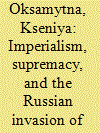

|
|
|
|
|
| Summary/Abstract |
Few predicted the Russian full-scale invasion of Ukraine and especially its brutality. Similarly, Ukraine’s capable and determined resistance came as a surprise to many. Ukraine, viewed through the Russian lenses, was erroneously characterized as “weak” and “fragmented.” In turn, Russia was seen as a modern power seeking a “sphere of influence” through attraction and occasional meddling in neighbors’ affairs. The Ukraine–Russia relations were misconstrued as “brotherly.” I argue that Russia should be understood as a colonial power whose aggression aims to re-establish supremacy over the Ukrainian nation. This desire arose from Ukrainians' increased acceptance in Europe, which Russians perceived as a transgression of hierarchies. The brutality of the invasion was aggravated by the Russian forces’ realization that Ukrainians not only rejected their “rescue mission” but did not need one in the first place. Misconceptions about the Russian invasion can be addressed through interdisciplinarity, engagement with postcolonial scholarship, and attention to facts.
|
|
|
|
|
|
|
|
|
|
|
|
|
|
|
|
| 3 |
ID:
165782
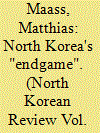

|
|
|
|
|
| Summary/Abstract |
Article Type: Commentary Essay Purpose—Much of the debate on North Korea assumes that Pyongyang would be truly satisfied with the overall status quo if it were only safe and secure enough. The purpose here is to argue that Pyongyang may instead be looking for reunification from a position of strength. Method—The short paper is built mostly on secondary-source research. It uses short historical case studies in addition to professional writings, both academic and journalistic. Findings—Overall, the argument is that Pyongyang has never abandoned the goal of unifying the peninsula under its own leadership. In fact, its "endgame" is a DPRK that spans the entire peninsula and unites the entire Korean people. Implications—To go forward and work with a nuclear North Korea towards a mutually agreeable long-term arrangement on the peninsula, understanding the long-term goals of Kim Jong Un is critical. The argument presented here may instill more caution in negotiation partners and statesmen/-women, especially in Seoul, Washington, and Tokyo, but also in Beijing and Moscow.
|
|
|
|
|
|
|
|
|
|
|
|
|
|
|
|
| 4 |
ID:
158823
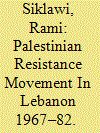

|
|
|
| 5 |
ID:
192612
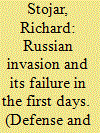

|
|
|
|
|
| Summary/Abstract |
In February 2022, Russia launched a large-scale military operation to take full control of the Ukrainian state. The invasion achieved virtually none of Russia's originally stated goals and instead of demonstrating Russian military power and effectiveness, it showed the exact opposite. Ambitious goals that were supposed to be achieved within a few days, turned out to be completely unrealistic. The war has become a long-term conflict of high intensity, instead of a flash military operation. The author argues that the cause of the Russian failure was not only the erroneous intelligence evaluation of the adversary by the Russian intelligence services and numerous mistakes of Russian units at the tactical and operational level. Rather, failure has also been due the structural weaknesses and shortcomings of the Russian army as institution. These long-term shortcomings were identified during the previous combat deployment of Russian forces in local conflicts and have never been resolved.
|
|
|
|
|
|
|
|
|
|
|
|
|
|
|
|
| 6 |
ID:
186920
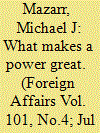

|
|
|
| 7 |
ID:
186916
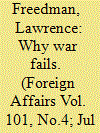

|
|
|
|
|
|
|
|